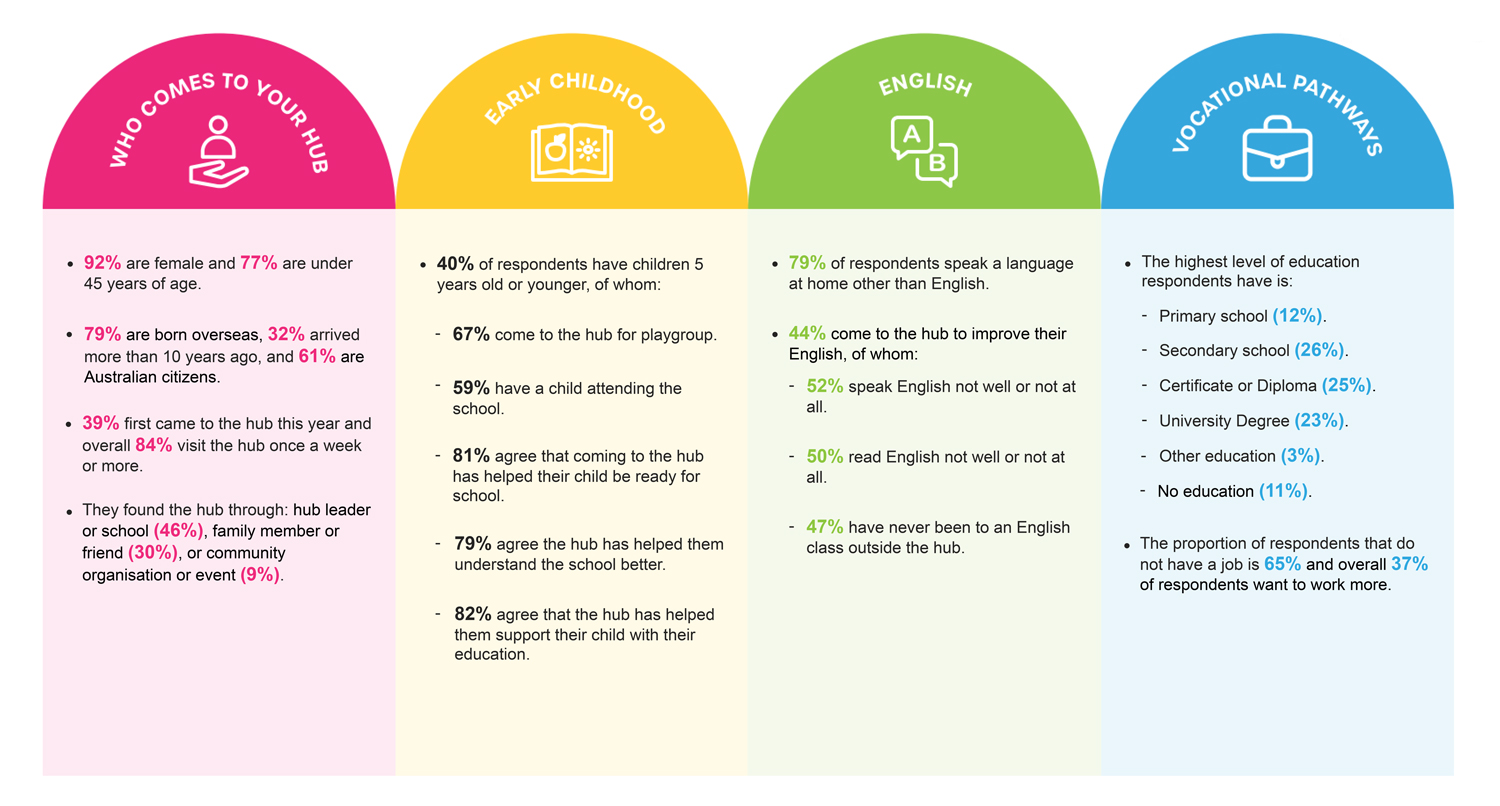The census is a way for all of us to learn who comes to hubs and why. It collects information such as age, gender, ethnicity, proficiency with English (self-assessed), education and employment, with some information about hub participant families. Census data helps us build a picture of who visits hubs and why.
Nationally, 3,084 adults completed the census this year. The below is a snapshot of who comes to hubs and why:

Further context
- One-fifth of adults spending time in hubs were born in Australia; 23% arrived in Australia in the last five years, 24% between 5-10 years ago, and 32% more than 10 years ago. Regardless of the length of time spent in Australia, hubs are a welcoming place.
- Most (79%) speak a language other than English at home, although this varies widely across the network. Regardless of language, the hub creates a sense of connection.
- Just under one third of respondents rate their ability to speak or read English as not very/not at all well. Interestingly, nearly half of the respondents who are coming to the hub to improve their English haven’t been to an English class outside of the hub. Hubs are filling a gap in the community by providing English in a way that works for the participant.
- Most (88%) have at least one dependent child at home, and 40% have preschool aged children. Of those with preschool aged children, 85% are bringing them to the hub, and half of these don’t take their children anywhere else. Without hubs, families may miss out on essential supports to ensure children start life well.
- The main reason people come to hubs is to spend time with other people (49%), improve their English skills (44%), for their children to join in playgroup (42%), to gain skills (32%), to learn about services (31%) or to learn about life in Australia (25%). In other words, the hub is critical for connection.
- For respondents with preschool aged children, through the hub, connection to the school is strong – 79% said coming to the hub helped them understand the school better, 82% said the hub helped with their child’s education and 81% of respondents noted the hub helped their child be ready for school. Place-based hubs in primary schools enable children to be better prepared to start school well.
We hope the insights support you in creating greater connections with your participants, ensuring programs and services in the hub are meeting the needs of your community. This information can also be used as an aide for your reporting and grant applications.